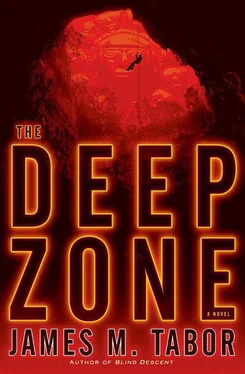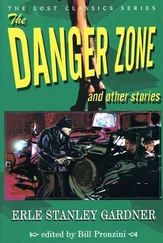Still not hurrying, not moving like someone who wanted to do damage unnecessarily, the man leaned down and removed Lathrop’s cellphone from his inside pocket.
“Any more in the car?” Asking his partner.
“No.”
“You good, then?”
“All good.”
The man who had butted him looked down and Lathrop’s vision cleared. He was watching the other man’s eyes, which showed nothing more than the attention of a craftsman doing a job of work, as he fired two times into the center of Lathrop’s chest, the silenced Beretta making small sounds, like a child’s hands clapping. But the impacts: punches of a giant fist. Then pain, and then astonishment. They have the wallet. And phone. Why shoot ?
But then, why not? In certain circles, murder had long since ceased being the greatest sin. Why didn’t matter anymore. Killing might be for fun, or to satisfy curiosity, or to pass a gang initiation, or for no more reason than a sneeze or a random thought. But not gangbangers, these . He kept his eyes on the other man’s, settling deeper into shock, a slow falling away, numb, his visual field graying, contracting. His brain produced no coherent thoughts but there were feelings too fast even for the shock to intercept, neurons firing and synapses sparking, and still the astonishment, blended now with an oceanic sadness as though watching the departure of a loved one who would never be seen again, but not regret, not one hint of it. David Lathrop had long since made his peace with death, and had tried to live each day of his life in such a way that when death came he would be able to greet it, if not with open arms, then at least without fear. The only thing he had always known about this moment was that he would never know when it would come.
The man then aimed his gun at Lathrop’s forehead, slightly left of center, and pulled the trigger. The last thing Lathrop saw was the Expedition’s license plate. The car was as immaculate as if it had just rolled off a showroom floor, but the license plate’s numbers were completely obscured by a layer of what looked like dried mud. They had done things like that in Baghdad and Kabul and Karachi. He understood.
Dr. Casey—it’s just after midnight. If you get this message before you go home, could you please come down to 4?
There’s something I think you should see before tomorrow.
Lew Casey stared at the handwritten note on his desk. It was 2:17 A.M. He had been at BARDA since 6:30 the previous morning and, except for two catnaps, had been working the whole time. He always came in earlier than those who worked for him, and he never left until all of them had gone home for the day. He would not go home now until he’d answered Evvie Flemmer’s request for him to visit BSL-4 one more time. Her tone seemed bright with the promise of good news.
He picked up the note, put it back down, went into the small bathroom that adjoined his office, and splashed cold water on his face and neck. Drying off, he caught a glimpse of himself in the mirror. He looked so ghastly that he laughed out loud. His pale skin was sheet-white, making the dark circles under his eyes look almost black. He hadn’t shaved since the night before last, and his cheeks bristled with wiry red stubble.
“You look like the living dead.” He made a face, went, “Boooooo,” laughed, shook his head.
Fatigue does strange things to the human brain, Lewis .
Especially to one not exceptionally sharp to begin with .
Knock it off. You do that when you’re tired. Your brain is still goddamned fine .
Then why haven’t you cracked this thing wide open? It’s not like those soldiers don’t need a cure .
You’re close, though .
Yeah. Big deal. What’s that old saying about close? Horseshoes and hand grenades? Close doesn’t cut it, Lewis .
He would just have to work more, work harder. As Evvie Flemmer was doing. He’d lost track of the last time she had been out of the building. If she could stay at it, so could he.
Forty-five minutes later, he stood in the decon shower, blowers drying his suit after their chemical bath. The fans stopped and the lights on the ingress panel turned green. Casey punched the big red button, the automatic doors slid open, he stepped through, and they closed again. Evvie turned from the lab bench where she had been working.
“Hello, Evvie. Don’t you ever go home?”
“I prefer it here, sir. Turn around and I’ll connect you.”
Casey turned, felt her connect the lab’s air hose, felt her depower his PLSS unit, felt her pull him over to the EM. He had wanted to tell her something, but through his fog of fatigue he could not remember what. No matter; it would come back to him.
“What’s so exciting that it couldn’t wait until tomorrow?”
“You have to see for yourself, sir. Just stand by while I get the viewing field calibrated.”
He waited, half asleep on his feet, while Evvie bent over the instrument, twisting dials, adjusting settings with the big dials. It seemed to be taking longer than usual.
“Damn.” Evvie’s voice sounded edgy with fatigue. “I’m sorry, sir. I messed it up. I’ll have to recalibrate. Just… bear with me. It’ll be worth it, I promise.”
“No problem, Evvie. We have all night.” He yawned, swayed, the need for sleep pulling him down like weight in water. He tried to focus on what she was doing, but her big suit blocked his view and there wasn’t room to stand beside her. So he remained where he was and…
Casey’s head snapped up. He had fallen asleep on his feet. But something else was happening. His vision was blurring and he was having difficulty breathing. Evvie Flemmer wasn’t bent over the electron microscope. He turned quickly, but his balance was off and he almost fell over. Careful. You breach this suit, you’re a dead man .
There she was, over by the air lock’s door.
“Evvie?” It seemed to take immense effort to say that one word. The exertion left him panting like a sprinter. His vision blurred again, graying. His heart was starting to race. “Evvie!”
She stood there, arms hanging loosely at her sides, watching him without expression. Studying him, as one might study a lab specimen. He began to gasp, hyperventilating, his heart going tachycardic, pushing up past 180 beats per minute.
Suddenly, he understood. His air supply had failed. He reached for the hose behind his shoulder, but the effort knocked him off balance and he nearly fell again. Then he grabbed at the PLSS unit on the waist belt of his suit, found the on/off switch, but nothing happened. His vision was contracting, his accelerated breathing burning up what little oxygen was left in his Chemturion. The carbon dioxide levels in the suit and in his body spiked and the laboratory began to spin around him. He lost his balance, fell, hit the floor hard on his back.
Stunned, he lay where he had fallen, arms waving feebly beside his body. He saw Evvie Flemmer come to stand beside him. She bent over slightly and he could see her face, calm, in her eyes only the pure curiosity of a scientist witnessing a mildly interesting event. Then Evvie did the strangest thing.
She smiled.
His lips began to turn blue and his pupils dilated. He could still think, but his feet and hands and lips were numb and his vision was failing, dimming, as though he were sinking deeper and deeper into darkening water.
“Evvie.”
He was not even sure he had spoken aloud.
She watched Casey dying, but the dual distortions of their plastic hoods made his face blurry and indistinct. It could have been the face of another man, thick-necked and hairy as an ape, who did unspeakable things to her year after year in a scorching Oklahoma trailer while her mother watched. She looked at their pictures every day, to keep fresh in her mind the horror of her father’s life in McAlester, Oklahoma’s maximum-security penitentiary. “Short eyes,” the other prisoners called despised child molesters, and she had researched in great detail the things those other prisoners did to such deviants. She kept her mother’s picture, too, the morgue photo, so that she could relish the horror of that woman’s existence as well, not in prison but in hell, where she had surely gone after hanging herself before their child-abuse trial was over.
Читать дальше












